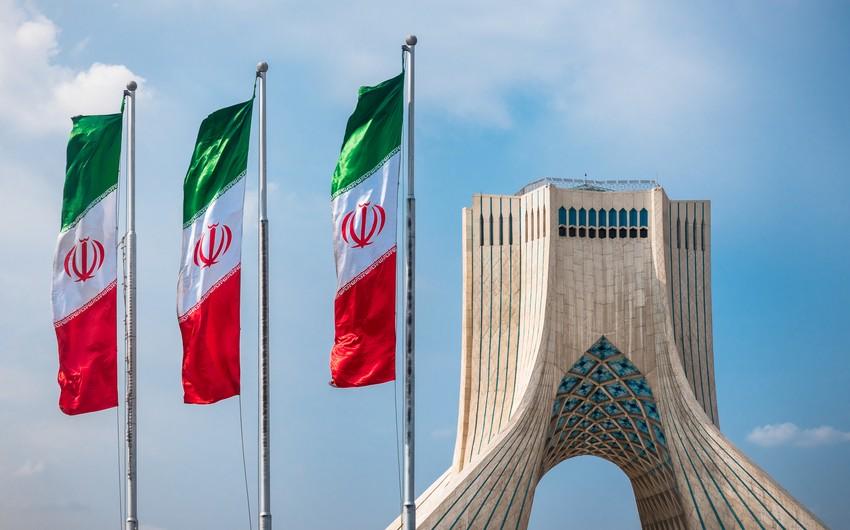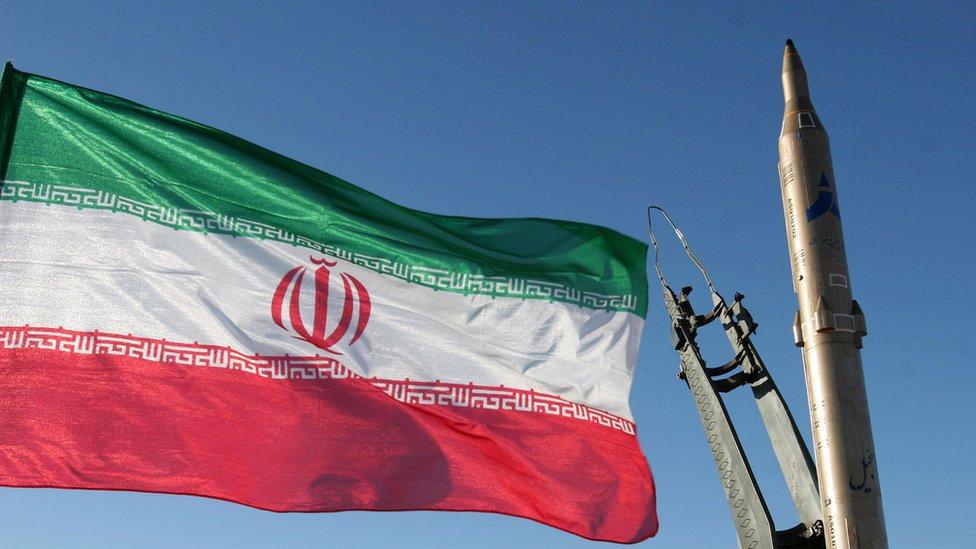Israel vs Iran: Reports from silent war frontlines Caliber.Az view of Middle Eastern mosaic
The Kuwaiti newspaper Al-Kabas disclosed the details of the untimely death of a prominent scientist, Dr Ayyub Ansari, who played a significant role in the development of Iran's missile projects. On the day of his death, Ansari was invited to dinner with a relative in the city of Yazd, ate a hearty meal, and when he returned home, he felt ill. The scientist was taken to the hospital, where doctors found he had internal bleeding. Despite all the attempts of doctors to save his life, Ayub Ansari died two hours later.
It's sad, but it happens sometimes. Perhaps the Iranian missile specialist had a stomach ulcer, or maybe the pilaf turned out to be too greasy. But why, in this case, did Al-Kabas and a number of other Middle Eastern publications discuss this news so violently? The reason for such wide publicity of the scientist's death, as well as the background of many events in this country, lies in the fierce confrontation between Iran and Israel, and the parties resort to various methods to damage each other, including the murder of scientists and high-ranking military.
In 2007-2012, four well-known nuclear scientists were killed in Iran. The authorities of this country blamed Mossad, the Israeli intelligence service, for the incident. On November 27, 2020, nuclear physicist Mohsen Fakhrizadeh, the head of the Iranian nuclear programme, was killed in an assassination attempt in a suburb of Tehran (the Israelis indicate that he was also a brigadier general of the Iranian Revolutionary Guards Corps - IRGC). It was reported that his car was shot from a remote-controlled machine gun.
On May 22, 2022, Hassan Sayyad Khodai, a colonel, and according to other sources, a brigadier general of the IRGC, one of the leaders of the elite Quds unit responsible for operations outside Iran, was shot dead on one of Tehran's central streets. Iranian websites indicate that Khodai was the deputy director for technological and weapons development of the Quds Force. He may have directed the transfer of high-precision missiles to the pro-Iranian Hezbollah militias (in Lebanon and Syria) opposing Israel. In addition, the Israeli media accused Hodai of preparing attempts on Israeli citizens.

Israel has not admitted responsibility for these and other murders, but few in the world doubt its involvement in them. The Israeli military-political analyst Jonathan Speier on the pages of the Jerusalem Post directly pointed out in connection with the murder of Fakhrizades that Israel has learned to remotely eliminate its opponents, preventing in advance the threats they pose to it. And although there is (at first glance) nothing suspicious in the case of Ayyub Ansari's death, it is clear why this event attracted increased attention.
The war between Israel and Iran is also being waged at sea and in the air. The parties systematically attack civilian vessels or ships carrying out military missions. As for the air war, a few weeks ago, the Israelis destroyed a drone storage facility in Iran, launching an air strike on them, probably with the help of their own UAV. But the main damage to Iran is caused by the "War between Wars" campaign: the Israeli Air Force systematically destroys the headquarters and warehouses of Iranians or pro-Iranian militias in Syria.
It would seem that Israel completely dominates this almost imperceptible war, using its military-technical and intelligence advantages, carrying out Iranian facilities deep behind enemy lines and conducting daring commando operations in the heart of Iran, in its capital. The Iranians' responses so far remain weak and unsuccessful - attempts to kill several Israeli businessmen and several failed drone infiltrations into Israel. However, it would be a big mistake to underestimate Tehran's capabilities.
Currently, the Middle East is split by the Iran-Israel confrontation. The Iranians have created a powerful sphere of influence. Relying on their proxies, Shiite militias and friendly parties, they have achieved enormous influence in Iraq, Syria and Lebanon, building the so-called "Shiite crescent" from Tehran to Beirut. In Lebanon, the pro-Iranian militia Hezbollah has actually established dominance over the country. In 2006, Hezbollah subjected Israel to massive shelling. For three weeks, rocket rains drove two million Israelis into bomb shelters, paralysing the country's economy. When Israel attempted to carry out a land invasion of Lebanon in order to destroy Hezbollah, it suffered serious losses from attacks by pro-Iranian guerrillas and was unable to complete the task. The Commission of Inquiry into Military Operations in Lebanon in 2006, led by Eliyahu Vinogradov, recognised the Israeli operation as unsuccessful.
The Iranians and their allies have found the main weakness of Israel – this country has a tiny territory that is shot up and down, and a monstrous population density. Half of the 9 million citizens live in urban development along the Mediterranean coast, in a narrow strip several tens of kilometres wide, where the main enterprises and communications of the country are located. This makes Israel extremely vulnerable to missile attacks.
True, the Jewish state has created a unique Iron Dome missile defence system capable of stopping 80-90 per cent of missiles, but Hezbollah has increased its missile potential 10 times since 2006 (to about 150,000 missiles) and, with the help of Iran, is modernising its missiles, turning them into high-precision - it is this work, apparently probably led by the now-deceased Khodai. In addition, Iran is developing a whole line of its own cruise and ballistic missiles, and attack drones.
Israel's other concerns are related to Iran's nuclear programme: the Iranians have only a few weeks left until they have the right amount of enriched uranium capable of becoming a nuclear weapon stuffing. It will take about another year to integrate a nuclear device with Iranian missile systems. Having a monopoly on nuclear weapons in the Middle East, Israel could do whatever it wanted, but nuclear parity could seriously change the rules of the game.
These two Iranian programmes, linked together, form red lines from Israel's point of view. There is a consensus among Jewish politicians that Iran should not be allowed to cross the line. Israel believes that it will not allow Iran to have its own nuclear weapons. As for missiles, the red line is considered to be the beginning of Hezbollah's production of new high-precision missiles at underground factories in Lebanon built by the Iranians. Ultimately, it is precisely to prevent Iran from crossing these red lines that Israeli military operations are aimed at - from assassinations of nuclear scientists and IRGC members involved in the supply of missile weapons to Hezbollah, to direct attacks on missile and drone depots in Syria, Iraq or even in Iran itself.

However, Israel does not currently have the ability to destroy the Iranian nuclear program, even if it enters into a full-scale war with Iran and brings down the full power of its air force on it, as Israeli military analyst Amos Harel notes. In his opinion, it takes about two more years of special training to deliver such a blow. And then, it may mean entering into a full-scale war with Iran and/or its allies - it is not obvious that Israel is ready to undergo massive strikes today or repeat the failure of 2006.
But he can't stop Iran's nuclear programme either. The murder of several specialists had little effect on the work of the huge nuclear industry, where tens of thousands of workers are employed. After the death of Mohsen Fakhrizadeh, Tehran even accelerated nuclear development, demonstrating that Israeli efforts are useless.
However, a new element has appeared in Israel's actions. As well-informed Israeli journalist Ben Kaspit notes, another notable change in Israeli tactics is that "kidnappings and interrogations are now carried out in Iran by local residents, and not by foreign agents". For example, one of the most daring operations was carried out in April, when Israeli agents or their allies in Iran detained an Iranian named Mansour Rasouli, who was allegedly an assassin - he was taken to an unknown place and interrogated. Recordings in which he "confesses that he was recruited by the Quds forces to attack an Israeli diplomat in Türkiye, a French journalist and an American general in Germany" were made public by Israeli and other media. So it is likely that the Israelis used a specially trained group of Iranians to eliminate Khodai.
Meanwhile, the Iranian regime is losing popularity, mass protests and riots occur in the country from time to time, and if the Mossad could train combat groups from opponents of the regime, this could affect the internal situation in this Muslim country.








